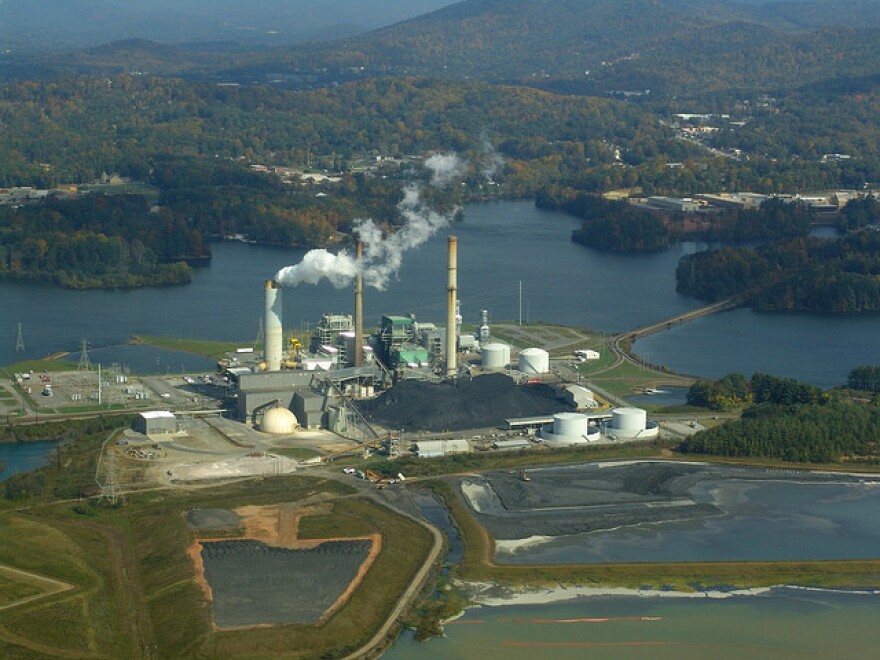A standing-room-only crowd packed a state government board room in Raleigh last night to express their thoughts on North Carolina’s commitment to climate change.
The official reason they were there was to comment on the North Carolina Department of Environmental Quality’s for compliance with the EPA’s Clean Power Plan.
North Carolina is required to reduce emissions from power plants by 32 percent by 2030, compared to 2012 emissions.
The primary plan from DEQ only addresses one “building block” of the requirement that has to do with how efficiently plants themselves operate. It does not address renewable energy or efficiency efforts.
The state’s response irked the vast majority of speakers.
“The North Carolina plan fails to include significant CO2 reductions, prioritize renewables, or meet the standards of the federal clean power plan,” said Hallie Turner, a 13-year old middle school student from Raleigh who recently sued—and lost—over the state’s commitment to issues of climate change.
Governor Pat McCrory’s administration has joined 23 other states in suing the EPA over the Clean Power Plan.
“It’s illegal and it’s really sad that we have a federal agency that is flaunting the law and abusing the trust that Congress gave to them in implementing the Clean Air Act,” said Donald van der Vaart, the Secretary of DEQ, addressing the NC Farm Bureau earlier this month. “They are now simply using it as a method for taking over the world’s greatest electricity generating system.”
Most of the states that are suing the EPA are concurrently working on a primary plan that meets the mandated standards. North Carolina’s primary plan does not, making it unique even among those states fighting the EPA. DEQ is also in the early stages of developing a secondary plan, should the EPA prevail in court.
Thursday night’s public comment period is required by the Environmental Management Commission. Only one EMC member attended.
Nearly 60 speakers spoke during the three-hour event. Many referenced the COP21 climate talks in Paris and pointed out North Carolina’s status as a global “outlier” in not working toward reducing activities that lead to climate change.
“We have fifty years of university research in our own state have shown what we need to do, and we need to do it now,” said Robert Bruck, emeritus professor of forestry at NC State. “North Carolina should be part of the solution, not part of the problem.”










